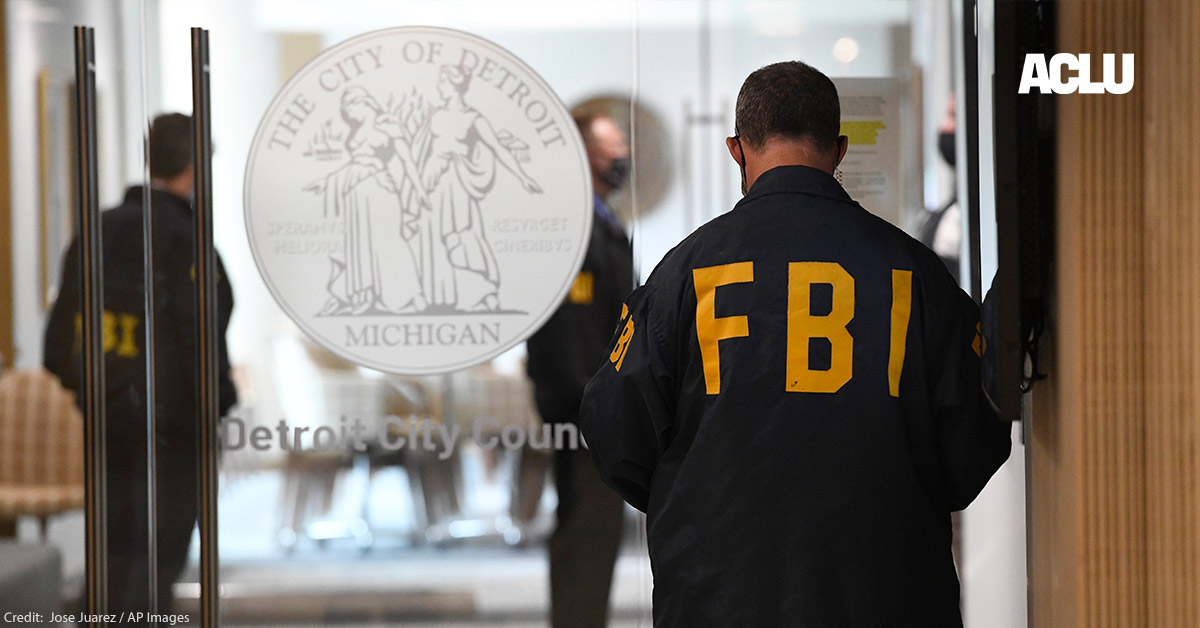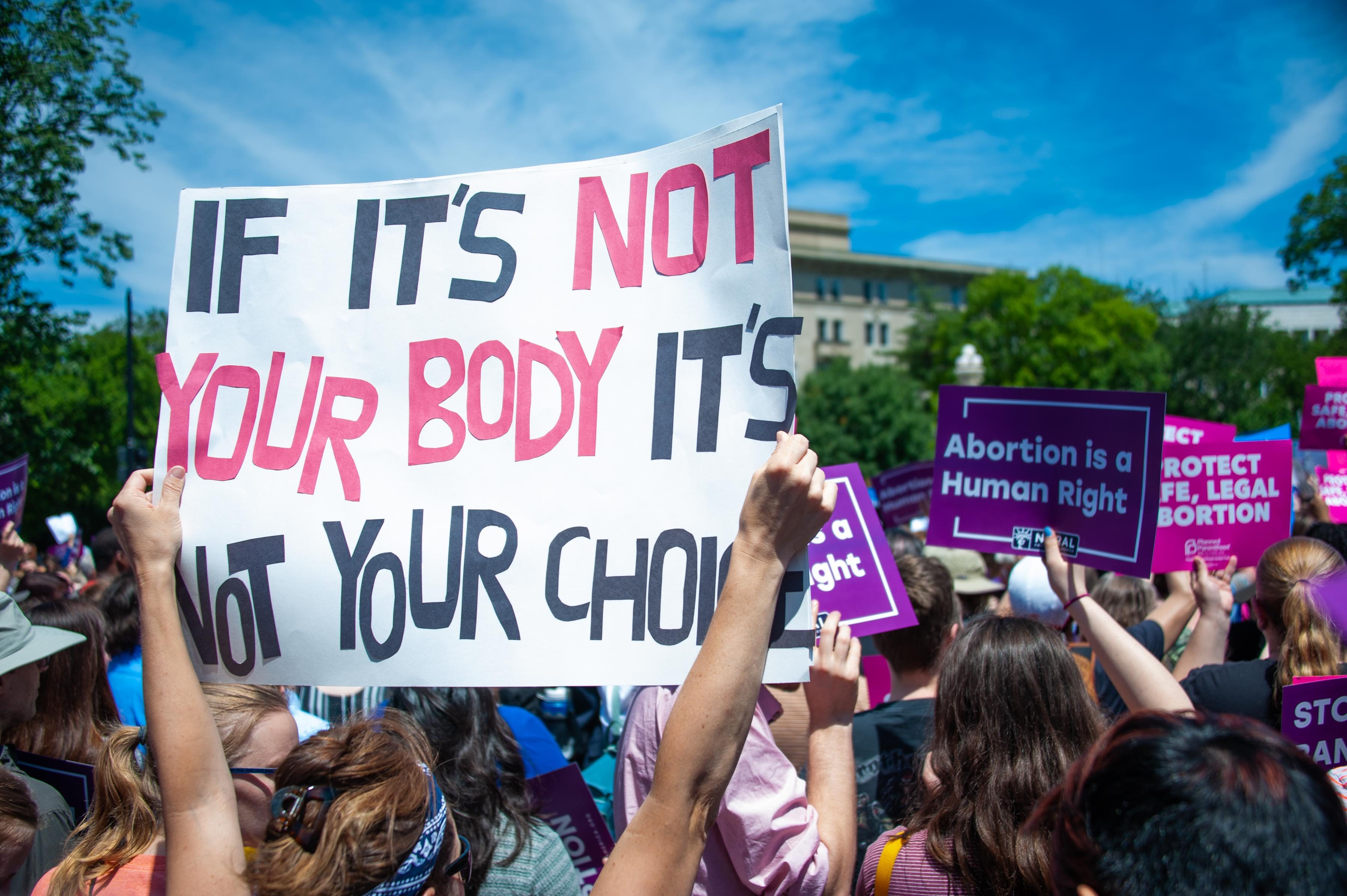As a Harvard graduate student and mother of three children, Zainab Merchant was accustomed to traveling frequently from her home in Orlando to Boston for her studies. In 2016, that all changed.
Those trips suddenly became ordeals: hours of delay at the airport waiting for government approval for her to fly, followed by lengthy, intrusive physical searches at TSA checkpoints, in full view of other travelers. When she and her family reentered the United States from travel abroad, they faced six hours of detention overnight while their six-month-old baby shivered and cried. On other trips, border officers searched her smartphone and questioned her about her religion, political opinions, and whether she knew anyone who had been “radicalized.”
For years, Zainab faced these kinds of physical searches, detention, and harassment every time she tried to fly or reenter the country — with no explanation or justification from the government.
Zainab’s experience exemplifies the consequences of the federal watchlisting system — a system that operates in secret and lacks even basic due process safeguards. It also overwhelmingly targets Muslims, immigrants, and communities of color — a booming echo of past discriminatory policies targeting groups, such as Japanese Americans, wrongly considered threats.
This unfair focus on Brown, Black, and Muslim communities is due in large part to loopholes in governing internal policies: the guidance on federal law enforcement agencies’ use of race. The Departments of Justice and Homeland Security both purport to ban biased profiling, but their guidance permits it in the national security and border contexts, which include vast federal investigative functions and operations at airports and borders. These exceptions enable the watchlisting system to exist and fuel its explosive growth.
We urgently need to end biased law enforcement profiling and fundamentally overhaul the watchlisting system because they violate basic rights and norms: transparency, accountability, due process, and equal protection under the law.
The current watchlisting system is almost entirely a creature of the post-9/11 period. As of the Sept. 11, 2001, attacks, the Department of Transportation maintained a list with 20-odd people suspected of posing a danger to aviation security. Today, according to the most recent information available, the government’s master watchlist, called the Terrorist Screening Database (TSDB), includes well over one million people. The Terrorist Screening Center within the FBI maintains the TSDB and disseminates it to more than 18,000 federal, state, and local law enforcement agencies; more than 500 private entities; and scores of foreign governments.
Although this system is unique in size and scope, it is not unprecedented. During the 20th century, in response to successive waves of hysteria surrounding conflict or the Cold War, the government used various lists to target alleged communist sympathizers, immigrants, and civil rights activists. Courts and the public eventually repudiated these lists as wrong and unfair, but only after lives and reputations had been left in tatters.
The current watchlisting system is an extreme version of these measures. It uses vague criteria and low, exception-ridden standards to place people on watchlists — essentially, guilt by aspersion or association. It also relegates individuals and groups the government deems suspect to second-class status without even basic due process protections. But unlike the lists of the past, we’ve had no similar reckoning for the current watchlisting system.
Today’s watchlists may have eluded broader scrutiny in part because their harms are not widely known outside the communities that experience them. Indeed, “watchlist” is a misnomer that masks how pernicious this system is. Placement in the TSDB system has acute and lasting consequences that can include:
- Inability to travel by air to, from, or over the U.S. because of placement on the No Fly List, which is a subset of the TSDB;
- Invasive physical searches and heightened scrutiny at TSA checkpoints every time a watchlisted person seeks to fly;
- Prolonged detention, interrogation, and physical searches at U.S. borders and ports of entry;
- Extended traffic stops and searches by state and local law enforcement officers;
- Detention, interrogation, surveillance, and harassment by foreign government officials;
- Inability to become a naturalized U.S. citizen or permanent resident, or obtain other immigration benefits, because of lengthy delay or pretextual denial of applications;
- Unexplained denial of visa applications; and
- Difficulty obtaining employment that requires a background check.
These consequences can ruin a person’s life, and they barely hint at the pain, confusion, and stigma that comes with wrongly being labeled a potential terrorist.
The government’s failure to provide a meaningful remedy for people on the lists compounds these harms. DHS’s redress system — inaptly called the Traveler Redress Inquiry Program, or DHS “TRIP” — makes a mockery of due process. When people experiencing harm from placement on the list submit a petition through this system, the government refuses to confirm or deny whether the submitter is even on a watchlist. They receive zero evidence or reasons for their placement on the watchlist, nor are they afforded a hearing before a neutral decision maker. Unsurprisingly, without any notice of the basis for their placement on a watchlist, people can’t correct government mistakes or misplaced suspicion and clear their names.
In 2009, our clients challenged the No Fly List redress process, and as a result of that lawsuit, the government now notifies U.S. citizens and permanent residents if they are on the No Fly List and may provide an “unclassified summary” of reasons why. The court unduly deferred to the government in upholding that revised process, which remains unconstitutional: The government still withholds reasons and evidence from people on the list, and it doesn’t provide any live hearing.
The difficulty of challenging watchlist placement means that people often languish on the list indefinitely. And because the government fights in court against defending its decisions to place people on watchlists, there’s little incentive for it to be rigorous about placement or to remove people who should not be — or never should have been — watchlisted. Absent that incentive, the watchlist simply continues to grow.
Another result of the lack of rigorous oversight and safeguards is that federal law enforcement officers use placement on the watchlist as leverage to try to coerce people to become informants — a phenomenon that is both corrosive and well-documented.
Disturbingly, the watchlisting system is not only expanding; it is evolving. Numerous federal agencies now employ automated tools that purport to identify “unknown threats” based on secret criteria. Individuals flagged by these systems experience many of the same consequences as formal watchlisting, such as travel problems or visa denials, without even the nominal redress procedures through DHS TRIP. And as agencies have vacuumed up biometric data from various sources, they’re using it to search for matches against watchlist data in new contexts such as building security. The government has even created a whole new watchlisting system for people suspected of some involvement in “transnational” crime — a list about which even less is known than the TSDB.
Congress and the executive branch must recognize biased profiling and the watchlisting system for what they are: an affront to the Constitution and the values we claim to hold dear. At a bare minimum, DOJ and DHS should revise their guidance to ban biased profiling, with no border or national security-related exceptions. Congress should also pass legislation barring biased profiling by law enforcement at all levels.
Further, the Biden administration should bar agencies from using watchlist information in ways that impact people’s liberty or property without rigorous due process safeguards, including notice of the reasons for watchlist placement and an opportunity to be heard before a neutral decision maker.
Former FBI agent Terry Albury said it well: “There is this mythology surrounding the war on terrorism, and the FBI, that has given agents the power to ruin the lives of completely innocent people based solely on what part of the world they came from, or what religion they practice, or the color of their skin.” That power cannot be squared with the Constitution or basic fairness. We need these abuses to end.


